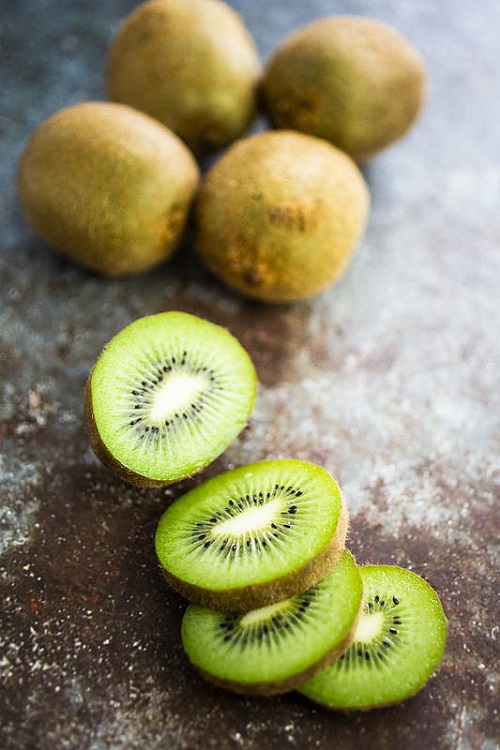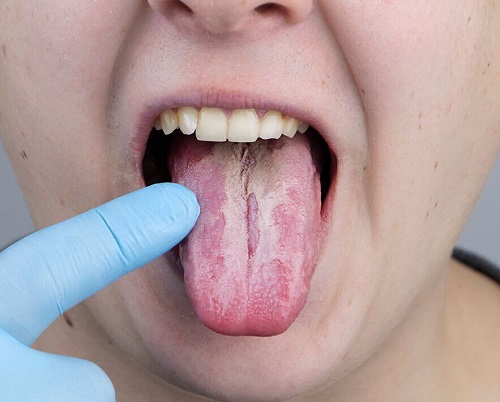Wondering Why Do Kiwis Burn My Tongue and How To Stop Kiwi From Burning Tongue? Let’s find out the answers below!
Kiwi fruit, with its vibrant green flesh and sweet-tart flavor, has won the hearts of many. However, for some people, kiwis are a nightmare causing a burning sensation and other range of symptoms. Read this article to find out Why Do Kiwis Burn Tongue and ways to manage this condition.
Here are some Best Fruit and Vegetables to Grow in Containers
Kiwi Info

The kiwi, also known as Chinese gooseberry, is a fruit native to China and Taiwan. It’s small and oval in shape with a fuzzy brown exterior. Inside, it has bright green flesh with tiny black seeds. The flesh of the fruit is known for its unique sweet and slightly tart savor. Kiwi is highly nutritious, being rich in vitamins C and E, potassium, and fiber. Most people consume kiwi raw, but it can also be used in a variety of dishes, including salads, smoothies, and desserts.
Why Do Kiwis Burn My Tongue?

Kiwis can cause a burning sensation on your tongue due to an enzyme they contain called actinidin. This enzyme has the ability to break down proteins, which can sometimes lead to a tingling or burning sensation in the mouth. Furthermore, other components found in kiwi, such as thaumatin-like protein and kiwellin, can also cause allergic reactions, further contributing to the burning sensation.
Symptoms of Kiwi Allergy
Kiwi allergy symptoms can vary from person to person and can range from mild to severe.
Mild Symptoms
- Skin Rashes
- Itching, tingling, or a slight burning sensation in the mouth or throat
Severe Symptoms
- Swelling of the tongue
- Numbness in the tongue, lips, or throat
- Trouble in breathing
- Stomach cramps or pain
- Nausea or vomiting
- Diarrhea
- Dizziness
How to Heal Tongue After Eating Kiwi?

If you’ve experienced a burning or tingling sensation on your tongue after eating kiwi, try the following steps to soothe the discomfort:
- Stop Eating Kiwis: As soon as you feel a burning or tingling sensation, stop eating Kiwis to prevent further irritation.
- Rinse Your Mouth: Immediately rinse your mouth with cold water to wash away any remaining fruit particles.
- Drink Milk: After rinsing your mouth, drink a glass of milk or a bowl of yogurt to neutralize the discomfort-causing enzymes in the kiwi.
- Have Some Ice Cream: Following the milk, eat a small amount of ice cream or popsicles.
- Avoid Acidic Foods and Drinks: For the next few hours, avoid consuming any acidic foods or drinks, as these could exacerbate the irritation.
How To Stop Kiwi From Burning Tongue?
To prevent a burning sensation in your mouth when eating kiwi, you can try these steps:
- Check the Kiwi’s Ripeness – The enzyme causing the burning sensation, actinidin, is less concentrated in ripe kiwis. Ensure your kiwi is ripe before its consumption.
- Peel the kiwi – The majority of actinidin is found in the skin of the kiwi fruit. By peeling the kiwi, you can reduce the exposure to the enzyme and potentially decrease the burning sensation.
- Pair with dairy or yogurt – Eating kiwi with dairy products, such as in a fruit salad with yogurt, can help. The proteins in dairy can neutralize the effects of the enzymes.
- Avoid if Allergic – If you know or suspect you’re allergic to kiwi, the best way to avoid a burning tongue is to avoid the fruit entirely. If you’re unsure about whether you have a kiwi allergy, consult with a healthcare professional.
Kiwi Fruit Alternatives

Here are some kiwi fruit alternatives that you might find interesting:
- Grapes: Ranging from sweet to tart, grapes come in various colors and flavors. They offer a refreshing taste, making them a versatile alternative to kiwi.
- Dragon Fruit: Also known as pitaya, dragon fruit is a visually striking fruit with a mild, sweet flavor. It can be a great substitute, especially if you enjoy vibrant colors.
- Strawberries: Strawberries are widely popular and loved for their sweet taste. They are juicy, versatile, and can be used in various dishes or simply enjoyed on their own.
- Raspberries: Packed with vitamins and minerals, raspberries are small, delicate berries with a sweet and slightly tart flavor.
- Watermelon: Watermelon is a hydrating and refreshing fruit that’s perfect for summer. It has a juicy texture and a naturally sweet taste that can provide a pleasant alternative to kiwi.
Why Do Kiwis Burn My Tongue: Conclusion
Kiwis can cause a burning sensation on the tongue due to the presence of an enzyme called actinidin, which breaks down proteins. This enzymatic activity can lead to mild irritation or tingling in the mouth. Additionally, some individuals may have an allergic reaction to kiwi, further intensifying the burning sensation. Other substances found in kiwi, such as thaumatin-like protein and kiwellin, also cause allergic reactions. If you experience persistent or severe symptoms, talk to a healthcare professional.
Frequently Asked Questions (FAQs)
1. Is Kiwi Supposed to Burn Your Tongue?
No, kiwi isn’t supposed to burn your tongue. However, some people experience a burning or tingling sensation when they eat it due to an enzyme called actinidin. Some people may also have an allergy to kiwi, which can exacerbate this sensation. However, most individuals can eat kiwi without any discomfort. If you consistently experience a burning sensation when eating kiwi, it may be best to avoid the fruit.
2. Are Kiwis Good for You?
Kiwis are highly valued for their nutrient content and numerous health-boosting properties. They are packed with vitamins, particularly vitamins C and E, and are a good source of dietary fiber.
3. Is Kiwi Allergy Common?
Allergy to kiwi fruit is becoming more prevalent in recent years. While it’s still considered relatively uncommon compared to other food allergies, the frequency of kiwi allergy cases is on the rise.
Is Jalapeno a Fruit or Vegetable? Find out here
